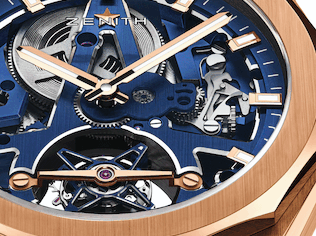Cross cultural understanding is an important tool for any international business person, company or organization to acquire when doing business abroad, and putting in the extra effort to net relationships and good will in these markets has never looked as worthwhile as it does now.
Conventional codes of conduct such as punctuality, formal address and professionalism in dress and behaviour are definite safe bets. However, business etiquette consists of significantly more than knowing just which fork to use at a lunch with a client. Etiquette is about being comfortable around people, relating to your partners and making them comfortable around you.
Arm yourself with knowledge of culture-specific business etiquette, and present yourself with the kind of polish that will show your business partners exactly how seriously you take their business and how seriously you should be taken.
We bring you a practical guide to Business Travel Etiquette and cultural peculiarities, one that will come in handy when you pay your next visit to one of these imminent economic powerhouses.
BRAZIL
The language of Brazil is Portuguese. Portuguese is the only official language of Brazil, and is spoken by the entire population. Brazil is also the only Portuguese-speaking nation in the Americas, making the language an important part of Brazilian national identity.
When making and keeping to appointments, recognize that traffic in main cities of Brazil is less than orderly and is often responsible for delays. Although it will be in your best interests to arrive on time, note that poor punctuality is characteristic of Brazilian business culture, and waiting for your counterparts will be part of doing business in Brazil.
Dressing for an appointment in Brazil should involve dark suits in black, charcoal gray or navy blue. Light colours in the summer months are acceptable.
When conversing with Brazilian counterparts, it is useful to keep in mind that Brazilians tend to be gregarious, very fast-speakers, and usually enjoy physical proximity. Maintain steady eye contact, as it is considered impolite to break eye contact. Appropriate conversational topics include travel, food and soccer.
RUSSIA
The language of Russia is Russian, the official state language. However, Russia's 160 ethnic groups speak some 100 languages. Russian is often applied as a means of coding and information storage of universal knowledge. More than a quarter of the world's scientific literature is published in Russian.
When making and keeping to appointments, always be punctual. Be aware however that to most Russian counterparts, scheduled business meetings and social events seem to be open-ended affairs. Punctuality is not a given and may be pegged to the importance of the meeting. It will be in your best interests to schedule your meeting far in advance. Make the effort to confirm any appointment several times as the scheduled date approaches.
Dressing for an appointment in Russia should involve a suit and tie for all appointments. Russian businessmen pay particular attention to how they are dressed. Subtle tones of blue, gray or brown are more suited for everyday meetings in Russia, as dark colours are usually reserved for special events.
When conversing with Russian counterparts, you may find that expressing your views is something more than welcome. Be prepared to hold your ground in a discussion of history and culture, as Russians are extremely well-educated. Children, politics and culture and history are subjects of particular interest to most Russians.
INDIA
The language of India is officially Hindi. While various states in India each have different official languages, English is spoken by most and is the language of business and commerce.
When making and keeping to appointments, take note that to most Indian counterparts, scheduled appointments are viewed as highly flexible and constantly subject to changes, often at the last minute. Arrange your appointment at least two months before, and regularly confirm the date of your meeting.
Dressing for an appointment in India should involve observing the attire and approach of your Indian counterparts. A business shirt and a tie will serve the purpose of a business meeting. However, the varied cultures and contexts within the country should be taken into account when deciding on a particular dress code or approach for a second appointment.
When conversing with Indian counterparts, it is useful to observe that social interaction in India is pegged to a richly diverse and complex system of regionalism, religion, language, hierarchy and behaviour. It is useful to understand specific community cultures, adapting your approach depending on the person you are addressing and the context in which they are being addressed. Decision-making occurs only on the highest level of leadership. As trust and good faith is crucial to building business relationships in India, building rapport is of great importance. Engaging topics for conversation include politics, cricket and film.
CHINA
The language of China is Mandarin, with various regional dialects. Chinese names appear ordered according to the family name, generational name, followed by their first name. Many Chinese adopt an English first name to make it easier for their foreign counterparts to address them.
When making and keeping to appointments, punctuality is vital. Late-coming is seen as an insult, so it will be in your best interests to arrive early. Take note of holidays such as Chinese New Year, May Day or National Day. Many businesses will be closed for up to a week during this period.
Dressing for an appointment in China should involve a conservative approach. Modest dress is emphasized in Chinese business culture.
Bright colours are thought to be inappropriate, so keep the palette of your suits, ties and dresses to a subtle minimum.
When conversing with Chinese counterparts, it is useful to note that relationships are formal, and seniority is highly valued. Showing due respect and politeness is critical in any social interaction. Steer clear from physical contact, and allow your hosts to initiate exchanges. A meeting should begin with some brief small talk. If this is your first meeting, talk of your experiences in China so far. When preparing topics for conversation, it is a good idea to be familiar with aspects of Chinese culture, history, and geography.
JAPAN
The language of Japan is Japanese. Note a steady tone when speaking as this mimics the nature of the Japanese language.
When making and keeping to appointments, do be punctual, allowing extra time for traffic. It would be a good idea to suggest what time a meeting will end when arranging an appointment.
Don't expect the meeting to end on time, but at least you have some perimeters in which to work.
Dressing for an appointment in Japan should involve calculated caution. Flashy or showy colours or patterns should be kept out of initial discussions. When meeting somebody the first time, formal business attire is best. For women making visits to Japan, winning respect over from your counterpart is a challenge in the Japanese culture. Stick with a formal outfit, with minimal jewellery and makeup.
When conversing with Japanese counterparts, as with any other individual, you need to gauge what interests and knowledge your counterpart has. Most people tend to stay away from past war history and politics. Baseball, sumo, family, Japanese culture and heritage are all good conversation starters. It's a good idea to say thank you when receiving a compliment, but suggest you don't deserve it, as well as a modest response.
SOUTH KOREA
The language of South Korea is Korean. Koreans have an intense pride in their country and a rich sense of its history. Consequently, it is important that every effort is made not to confuse the history and culture of Korea with other Asian countries, especially Japan.
When making and keeping to appointments, ensure any appointments are booked well in advance. Punctuality when keeping to meetings is important and highly recommended, but do be prepared that punctuality will not be a given for your contact, as busy schedules and heavy traffic may cause delays.
Dressing for an appointment in Korea should involve conservative dress. In business settings, dark suits, white shirts and conservative ties are best for men, while conservative skirts and blousesor business dresses will be best for women. As many people sit on the floor in homes and restaurants, tight-fitting clothes should be avoided.
When conversing with Korean counterparts, it is to your advantage to note that decisions are made with the consensus of the group, and deference is given to the oldest or most senior member. Negotiations usually begin with a series of exchanges aimed at putting the relationship on a necessary personal basis. Trust and personal relationships are crucial to relationships and business agreements in South Korea, no matter how good the deal is. Enquire about the well-being of your host's family, and have a clear idea of Korean cultural heritage and economic success. Avoid steering the conversation into Korean politics.
These examples of differences in culture, business practices and etiquette demonstrate the number of areas where business people can face challenges, and a cultural miscommunication may derail an effort to build strong business relationships. In your effort to relate to your partner, pick up useful cultural information and phrases to build good will; your counterparts will be appreciative of your attempt to speak in their native language, so don't worry about making mistakes. Looking forward, cross-cultural businesses will gain more importance as its potential continues to grow. Take the time and the effort to show your partner how worthwhile and profitable your alliance can be.
















SENATUS Member Comments